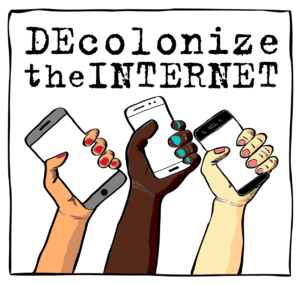After the “teaser” by Nick Couldry and Ulises A. Mejias, two more articles of the Special Issue on “Big Data from the South” have now gone online! Happy reading!
Decolonizing Privacy Studies by Payal Arora
This paper calls for an epistemic disobedience in privacy studies by decolonizing the approach to privacy. As technology companies expand their reach worldwide, the notion of privacy continues to be viewed through an ethnocentric lens. It disproportionately draws from empirical evidence on Western-based, white, and middle-class demographics. We need to break away from the market-driven neoliberal ideology and the Development paradigm long dictating media studies if we are to foster more inclusive privacy policies. This paper offers a set of propositions to de-naturalize and estrange data from demographic generalizations and cultural assumptions, namely, (1) predicting privacy harms through the history of social practice, (2) recalibrating the core-periphery as evolving and moving targets, and (3) de-exoticizing “natives” by situating privacy in ludic digital cultures. In essence, decolonizing privacy studies is as much an act of reimagining people and place as it is of dismantling essentialisms that are regurgitated through scholarship.
(Big) Data and the North-in-South: Australia’s Informational Imperialism and Digital Colonialism by Monique Mann and Angela Daly
Australia is a country firmly part of the Global North, yet geographically located in the Global South. This North-in-South divide plays out internally within Australia given its status as a British settler-colonial society which continues to perpetrate imperial and colonial practices vis-à-vis the Indigenous peoples and vis-à-vis Australia’s neighboring countries in the Asia-Pacific region. This article draws on and discusses five seminal examples forming a case study on Australia to examine big data practices through the lens of Southern Theory from a criminological perspective. We argue that Australia’s use of big data cements its status as a North-in-South environment where colonial domination is continued via modern technologies to effect enduring informational imperialism and digital colonialism. We conclude by outlining some promising ways in which data practices can be decolonized through Indigenous Data Sovereignty but acknowledge these are not currently the norm; so Australia’s digital colonialism/coloniality endures for the time being.
